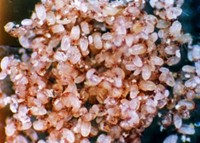Advertisement
Grab your lab coat. Let's get started
Welcome!
Welcome!
Create an account below to get 6 C&EN articles per month, receive newsletters and more - all free.
It seems this is your first time logging in online. Please enter the following information to continue.
As an ACS member you automatically get access to this site. All we need is few more details to create your reading experience.
Not you? Sign in with a different account.
Not you? Sign in with a different account.
ERROR 1
ERROR 1
ERROR 2
ERROR 2
ERROR 2
ERROR 2
ERROR 2
Password and Confirm password must match.
If you have an ACS member number, please enter it here so we can link this account to your membership. (optional)
ERROR 2
ACS values your privacy. By submitting your information, you are gaining access to C&EN and subscribing to our weekly newsletter. We use the information you provide to make your reading experience better, and we will never sell your data to third party members.
Biological Chemistry
Common anti-inflammatory drugs could be an antidote for scorpion venom
Common medicines indomethacin and celecoxib tame deadly immune reaction in mice exposed to scorpion poison
by Sarah Everts
February 24, 2016
| A version of this story appeared in
Volume 94, Issue 9
The sting of a scorpion can be deadly without the right antivenom handy—each year, some 3,000 people die from encounters with these poisonous arthropods. Now, a research team in Brazil has discovered a potentially simple strategy to treat scorpion-sting victims: give them common anti-inflammatory drugs, such as indomethacin and celecoxib (Nat. Commun. 2016, DOI: 10.1038/ncomms10760).
The researchers, led by Lúcia H. Faccioli of the University of São Paulo, showed that mice treated with these drugs after being given deadly doses of scorpion venom were able to recover. If the work in mice translates to humans, first-aid professionals could turn to these common drugs when treating patients in remote, hot, or poor regions that may not have supplies of antibody-based antivenoms.
Antivenoms such as these require cold storage, are expensive, and work only as antidotes for the venom of specific species, comments Noah Palm, an immunologist at Yale University. He says it’s not practical for scientists studying poisonous animals in the field to carry antivenoms designed to counteract every dangerous species. “The possibility for a generic treatment is exciting,” Palm adds. He’d like to see whether Faccioli’s results in scorpions could be extended to other venomous creatures.
Faccioli and her team found that mice stung by scorpions experienced a severe immune reaction. This type of overreaction can be worse than the direct effects of the venom’s poison: The immune system’s frenzy causes life-threatening pulmonary edema—filling of the lungs with fluid—which puts individuals at risk for death by suffocation.
Working with mice, Faccioli’s team teased out the immune signaling pathways activated by the venom of the Brazilian yellow scorpion, Tityus serrulatus. She and her colleagues found that levels of the lipid signaling molecule prostaglandin E2 skyrocketed, correlating with severe inflammation and pulmonary edema in the animals. The role of prostaglandin E2 in the deadly reaction made Faccioli suspect that common nonsteroidal anti-inflammatory drugs (NSAIDs), which reduce overall prostaglandin levels in the body, could control the inflammation caused by the scorpion venom.
Next, Faccioli hopes to start tests in humans as soon as she receives approval from an ethics board.







Join the conversation
Contact the reporter
Submit a Letter to the Editor for publication
Engage with us on Twitter